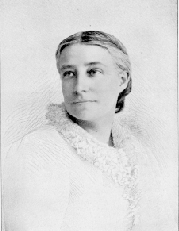A Quote by William Harvey
Nature is nowhere accustomed more openly to display her secret mysteries than in cases where she shows tracings of her workings apart from the beaten paths; nor is there any better way to advance the proper practice of medicine than to give our minds to the discovery of the usual law of nature, by careful investigation of cases of rarer forms of disease.
Related Quotes
We are neither obstinately nor wilfully to oppose evils, nor truckle under them for want of courage, but that we are naturally to give way to them, according to their condition and our own, we ought to grant free passage to diseases; and I find they stay less with me who let them alone. And I have lost those which are reputed the most tenacious and obstinate of their own defervescence, without any help or art, and contrary to their rules. Let us a little permit nature to take her own way; she better understands her own affairs than we.
Nature! We live in her midst and know her not. She is incessantly speaking to us, but betrays not her secret. We constantly act upon her, and yet have no power over her. Variant: NATURE! We are surrounded and embraced by her: powerless to separate ourselves from her, and powerless to penetrate beyond her.
Very few men can speak of Nature, for instance, with any truth. They overstep her modesty, somehow or other, and confer no favor.They do not speak a good word for her. Most cry better than they speak, and you can get more nature out of them by pinching than by addressing them. The surliness with which the woodchopper speaks of his woods, handling them as indifferently as his axe, is better than the mealy-mouthed enthusiasm of the lover of nature. Better that the primrose by the river's brim be a yellow primrose, and nothing more, than that it be something less.
The Girl of the Period, sauntering before one down Broadway, is one panorama of awful surprises from top to toe. Her clothes characterize her. She never characterizes her clothes. She is upholstered, not ornamented. She is bundled, not draped. She is puckered, not folded. She struts, she does not sweep. She has not one of the attributes of nature nor of proper art. She neither soothes the eye like a flower, nor pleases it like a picture. She wearies it like a kaleidoscope. She is a meaningless dazzle of broken effects.
But when did you see her, talk to me? When did you see her go into the cave? Why did you threaten to strike a spirit? You still don't understand, do you? You acknowledged her, Broud, she has beaten you. You did everything you could to her, you even cursed her. She's dead, and still she won. She was a woman, and she had more courage than you, Broud, more determination, more self-control. She was more man than you are. Ayla should have been the son of my mate.
Respecting the environment does not mean considering material or animal nature more important than man. Rather, it means not selfishly considering nature to be at the complete disposal of our own interests, for future generations also have the right to reap its benefits and to exhibit towards nature the same responsible freedom that we claim for ourselves. Nor must we overlook the poor, who are excluded in many cases from the goods of creation destined for all.
When the soul is naughted and transformed, then of herself she neither works nor speaks nor wills, nor feels nor hears nor understands; neither has she of herself the feeling of outward or inward, where she may move. And in all things it is God who rules and guides her, without the meditation of any creature.... And she is so full of peace that thought she pressed her flesh, her nerves, her bones, no other thing come forth from them than peace.
Some leave our life with tears, others with an insane frigidity; Mrs. Wilcox had taken the middle course, which only rarer natures can pursue. She had kept proportion. She had told a little of her grim secret to her friends, but not too much; she had shut up her heart--almost, but not entirely. It is thus, if there is any rule, that we ought to die--neither as victim nor as fanatic, but as the seafarer who can greet with an equal eye the deep that he is entering, and the shore that he must leave.



































